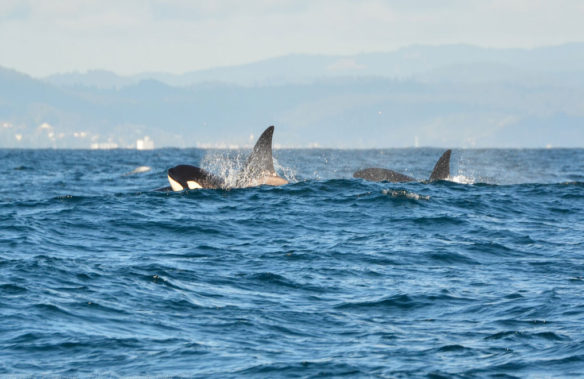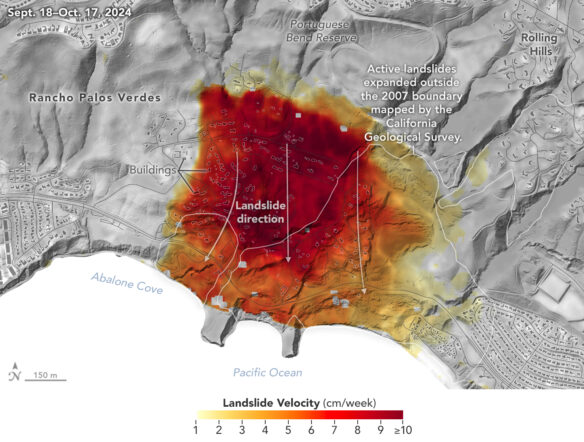
Killer Whales, Monterey Bay, California. Photo source: ©© John K
Excerpts;
In an “unprecedented” rash of attacks, a pod of killer whales in Monterey Bay, California, has killed four gray whales in a week, a phenomenon one researcher hasn’t seen in her 30-year career…
Read Full Article, Guardian UK (04-28-2017)
Spread of algal toxin through marine food web broke records in 2015, Science Daily (01-10-2016)
Researchers monitoring the unprecedented bloom of toxic algae along the west coast of North America in 2015 found record levels of the algal toxin domoic acid in samples from a wide range of marine organisms. The toxin was also detected for the first time in the muscle tissue or filet of several commercial fish species…
Warmer West Coast ocean conditions linked to increased risk of toxic shellfish; NOAA (01-09-2017)
Hazardous levels of domoic acid, a natural toxin that accumulates in shellfish, have been linked to warmer ocean conditions in waters off Oregon and Washington for the first time by a NOAA-supported research team…
Unprecedented sea lion strandings in California linked to warmer Pacific, Reuters (02-19-2015)
The strandings of a record number of sea lion pups along the California coast this year are linked to a puzzling weather pattern that has warmed their Pacific Ocean habitat and likely impacted fish populations they rely on for food, federal scientists said…
Record Number of Seals Are Dying On California Shores, Nature World News (04-18-2015)
Along California’s coast, an increasing number of endangered Guadalupe fur seals have died after stranding themselves on shore. Since January, almost 80 dead fur seals have been found in the area, leading the National Oceanic and Atmospheric Administration (NOAA) to declare an “Unusual Mortality Event” (UME)…
World Must Tackle the Biggest Killer of Whales; IPS News (10-24-2016)
Larger marine animals at higher risk of extinction, and humans are to blame, Science Daily (09-14-2016)
In today’s oceans, larger-bodied marine animals are more likely to become extinct than smaller creatures, according to a Stanford-led report. It’s a pattern that is unprecedented in the history of life on Earth, and one that is likely driven by human fishing…
Ship noise in coastal habitats could interfere with orca’s communication; Science Daily (02-03-2016)









